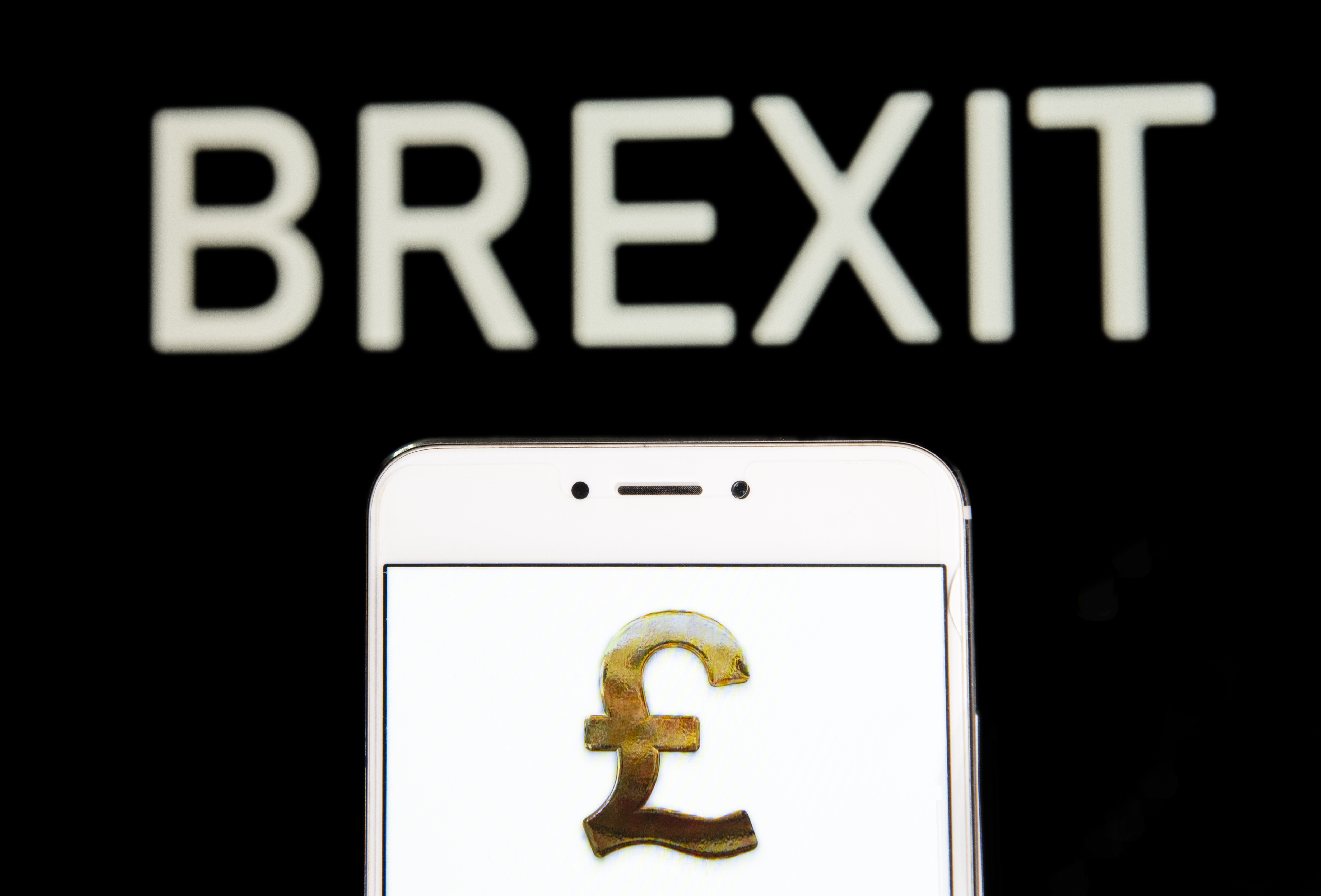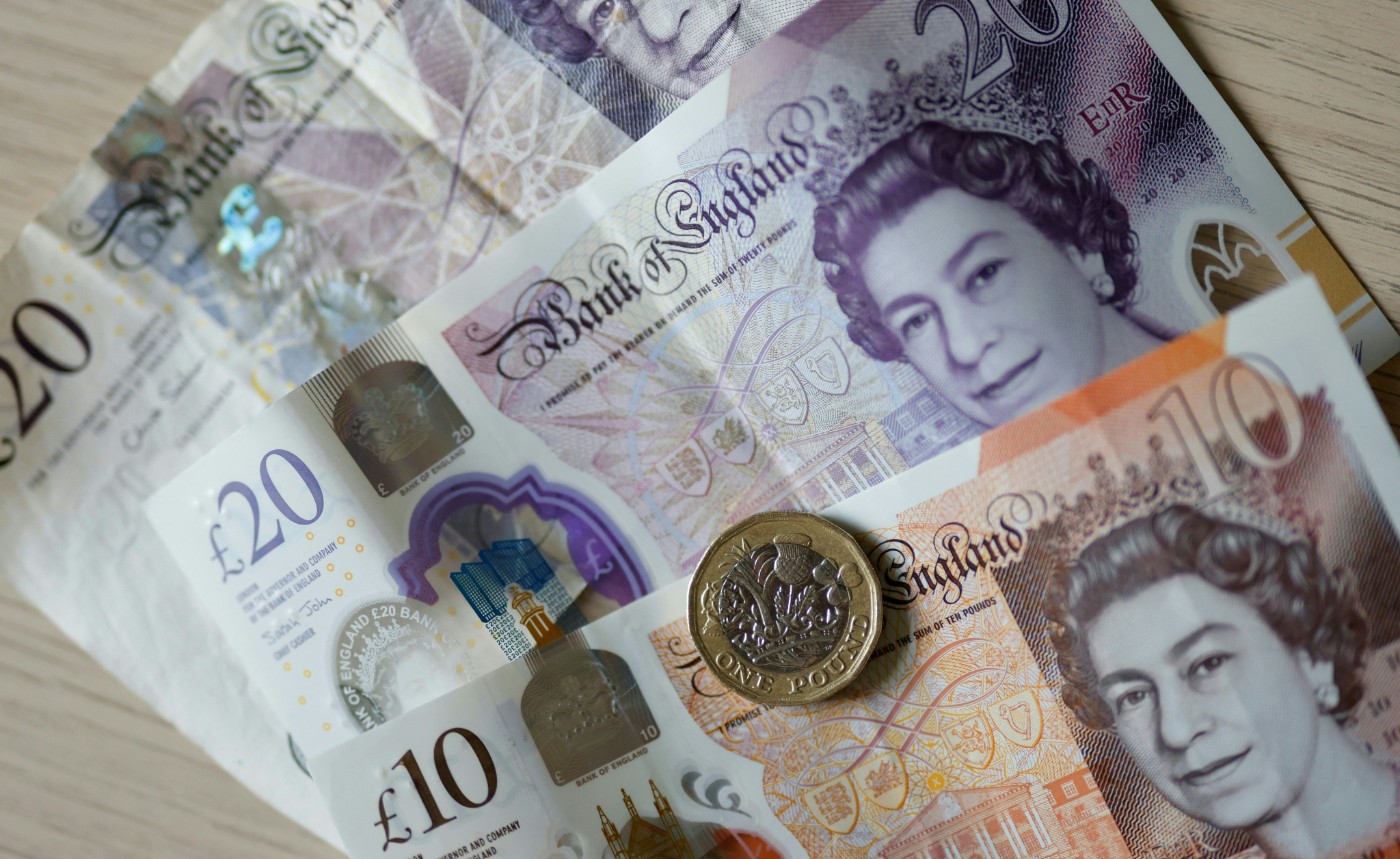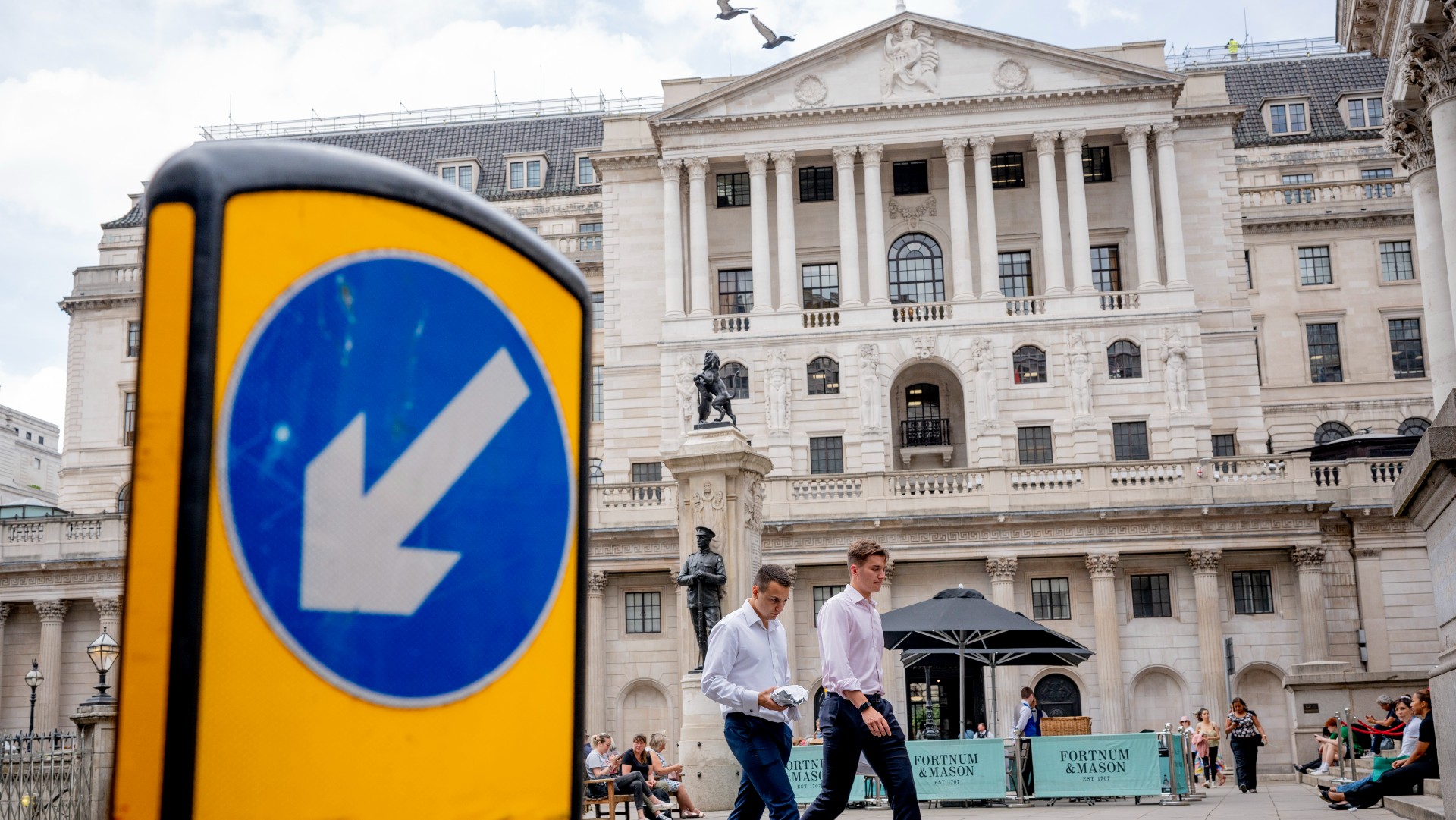Pound volatile after Boris Johnson orders parliamentary suspension
Investors still divided about the risk of no-deal Brexit in October


A free daily email with the biggest news stories of the day – and the best features from TheWeek.com
You are now subscribed
Your newsletter sign-up was successful
The pound plunged yesterday after Prime Minister Boris Johnson said he would ask the Queen to prorogue parliament for an extended period soon after its return in September.
The lengthened suspension creates an even narrower window for an already ramshackle opposition to stand in the way of a no-deal Brexit, an outcome markets fear and the Bank of England has deemed the worst-case scenario for the economy.
Sterling was the world’s worst-performing currency on Wednesday morning, diving 0.7 per cent to $1.2201, and was down 0.6 per cent against the Euro. It remained volatile throughout the day.
The Week
Escape your echo chamber. Get the facts behind the news, plus analysis from multiple perspectives.

Sign up for The Week's Free Newsletters
From our morning news briefing to a weekly Good News Newsletter, get the best of The Week delivered directly to your inbox.
From our morning news briefing to a weekly Good News Newsletter, get the best of The Week delivered directly to your inbox.
“This seems like a pre-emptive strike from [Johnson] against those seeking to block a no-deal Brexit and once more it seems that the opposition are in danger of fluffing a big opportunity to have an impact,” said David Cheetham, an analyst at currency trader XTB Online Trading, quoted by the BBC. “If the government is successful in this, then a no-deal Brexit wouldn't be taken off the table until the 11th hour at the earliest and this keeps a significant downside risk to the pound in play.”
Speaking to Business Insider, Craig Erlam, senior market analyst for the UK & EMEA at Oanda, had a starker analysis: “The pound is in freefall this morning after plans emerged to prorogue parliament and prevent MPs from passing legislation to prevent no deal. This isn't the first we've heard of these dirty tactics but it was maybe hoped that such un-democratic measures would not be needed or used.”
Derek Halpenny, head of research for global markets at MUFG, said to Reuters. “No-deal Brexit is looking ever more likely; sterling downside risks will continue to plague the market.”
“Investors’ expectations for swings in sterling over the next three months rose 5.5 per cent on Wednesday to their highest since January when former prime minister Theresa May tried to force her original Brexit deal through the House of Commons,” reports the Financial Times.
A free daily email with the biggest news stories of the day – and the best features from TheWeek.com
However, according to many experts, the stock market is not yet panicking. “The pound appears to be taking the strain of any news flow related to Brexit and we would expect the volatility to continue,” said Georgina Taylor, a fund manager at Invesco, to the FT.
Indeed, for many investors, yesterday’s news isn’t all bad. “Many bumps and twists remain, but today’s announcement makes our base case, another Brexit delay and a general election, more likely,” said Citi economist Christian Schulz in MarketWatch.
Writing in the Financial Post, Jasper Lawler from London Capital Group, agrees. “Here’s the dilemma for whether traders follow through on the knee-jerk selling: Chances of a no-deal exit increase if Parliament cannot block it, but arguably the chance of a deal improves if the EU recognizes that the fate of no deal rests with them. This latest twist in the Brexit saga reinforces our view that the odds of a Brexit deal have improved, but still that no-deal is most likely.”
William Gritten is a London-born, New York-based strategist and writer focusing on politics and international affairs.
-
 Britain’s ex-Prince Andrew arrested over Epstein ties
Britain’s ex-Prince Andrew arrested over Epstein tiesSpeed Read The younger brother of King Charles III has not yet been charged
-
 Political cartoons for February 20
Political cartoons for February 20Cartoons Friday’s political cartoons include just the ice, winter games, and more
-
 Sepsis ‘breakthrough’: the world’s first targeted treatment?
Sepsis ‘breakthrough’: the world’s first targeted treatment?The Explainer New drug could reverse effects of sepsis, rather than trying to treat infection with antibiotics
-
 Can the UK avoid the Trump tariff bombshell?
Can the UK avoid the Trump tariff bombshell?Today's Big Question President says UK is 'way out of line' but it may still escape worst of US trade levies
-
 Five years on, can Labour's reset fix Brexit?
Five years on, can Labour's reset fix Brexit?Today's Big Question Keir Starmer's revised deal could end up a 'messy' compromise that 'fails to satisfy anyone'
-
 Why au pairs might become a thing of the past
Why au pairs might become a thing of the pastUnder The Radar Brexit and wage ruling are threatening the 'mutually beneficial arrangement'
-
 Brexit: where we are four years on
Brexit: where we are four years onThe Explainer Questions around immigration, trade and Northern Ireland remain as 'divisive as ever'
-
 Is it time for Britons to accept they are poorer?
Is it time for Britons to accept they are poorer?Today's Big Question Remark from Bank of England’s Huw Pill condemned as ‘tin-eared’
-
 Is Brexit to blame for the current financial crisis?
Is Brexit to blame for the current financial crisis?Talking Point Some economists say leaving the EU is behind Britain’s worsening finances but others question the data
-
 What the pound’s record low means for the UK
What the pound’s record low means for the UKfeature Weak currency means higher prices and prospect of big interest rate hike
-
 Can looming UK recession be averted?
Can looming UK recession be averted?feature Experts say indirect impacts of Queen’s death could tip fragile economy over the edge
